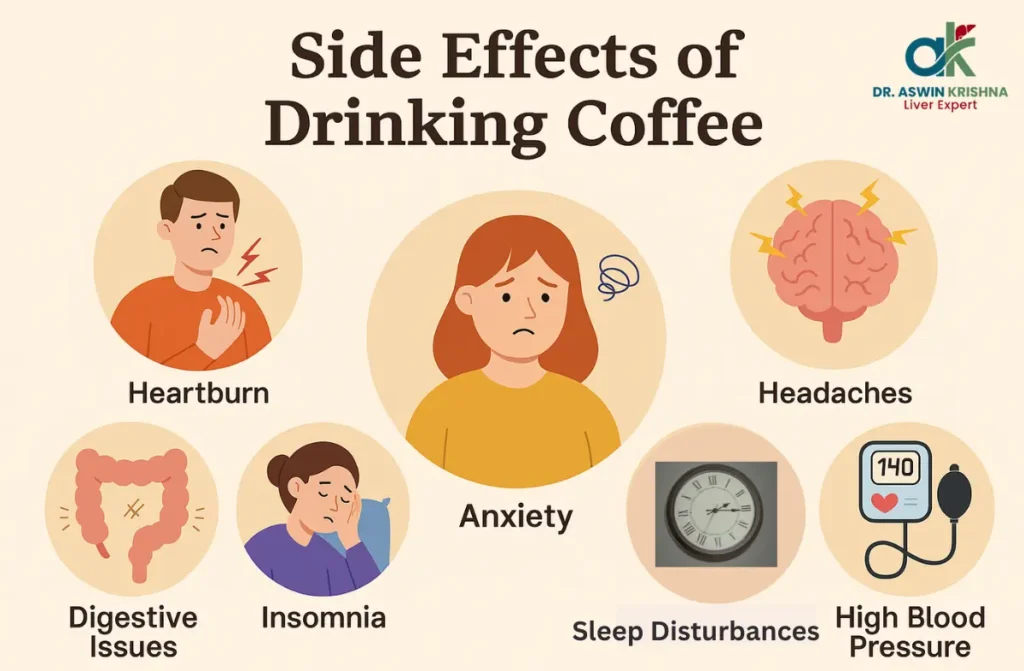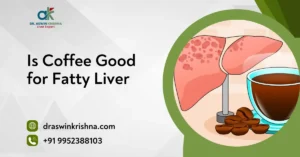The liver is one of the body’s most hardworking organs, quietly filtering toxins, processing nutrients, and supporting digestion every single day. But when excess fat builds up within its cells, this balance starts to falter—leading to a condition known as fatty liver. Amid countless dietary remedies and lifestyle tips, one question keeps resurfacing: is coffee good for fatty liver? Surprisingly, this familiar morning ritual may hold more benefits than most people realize. Let’s explore how your daily cup might just be a gentle ally for your liver.
Understanding the Importance of the Liver
The liver is your body’s natural detox powerhouse — filtering harmful substances, regulating metabolism, and producing bile to aid digestion. When it functions well, your body runs smoothly; when it’s burdened by fat, toxins, or alcohol, everything slows down.
- Metabolic Balance: The liver manages blood sugar, cholesterol, and fat storage. When it’s overloaded, fat starts to accumulate, leading to fatty liver disease.
- Detoxification Role: It filters out waste and neutralizes toxins from food and medication. A sluggish liver struggles to keep up, making daily fatigue and poor digestion more common.
- Nutrient Processing: Every bite of food passes through the liver, where nutrients are converted into energy. Damage or fat buildup limits this efficiency.
- Why It Matters: Understanding liver health helps answer questions like is coffee good for fatty liver — because supporting this organ’s recovery starts with smart lifestyle choices and mindful nutrition.
Coffee and the Liver: What Does the Research Say?
Over the years, researchers have explored how coffee interacts with liver health — and the findings are surprisingly encouraging. Let’s uncover how your morning brew may do more than just wake you up.
- Coffee May Help Slow Liver Disease Progression: Studies suggest that regular coffee drinkers show slower progression of liver fibrosis and cirrhosis. The compounds in coffee help prevent excessive collagen buildup, which is key in protecting against long-term liver scarring.
- It Reduces Liver Enzyme Levels: Elevated liver enzymes often signal inflammation or damage. Drinking coffee appears to lower these enzyme levels, showing that coffee is good for fatty liver when consumed in moderation. It may also indicate improved liver function and reduced oxidative stress.
- Antioxidant and Anti-inflammatory Benefits: Coffee contains chlorogenic acid and other antioxidants that protect liver cells from damage. These compounds reduce inflammation, supporting the idea that coffee and liver detox go hand in hand.
- Protection Against Liver Cancer: Regular coffee intake has been linked to a lower risk of liver cancer. The beverage’s bioactive compounds may interfere with cancer cell growth and protect the liver from further harm — especially relevant for those wondering, is coffee bad for liver or beneficial for prevention?
How Does Coffee Help?
Coffee’s benefits for liver health go beyond caffeine—it’s a blend of natural compounds that work together to protect and rejuvenate the liver. Here’s how it helps those wondering is coffee good for fatty liver and how it supports coffee and liver detox.
- Boosts Fat Metabolism: Coffee enhances enzymes responsible for breaking down fats in the liver. This prevents excessive fat accumulation, a key factor in reversing fatty liver disease.
- Promotes Liver Regeneration: Caffeine and polyphenols stimulate the production of protective enzymes that aid in liver cell repair, helping the organ heal from damage caused by fat or toxins.
- Supports Natural Detox Processes: By stimulating bile flow, coffee helps the liver flush out toxins more efficiently. This gentle detox effect improves digestion and energy while easing the liver’s workload.
- Reduces Inflammation and Oxidative Stress: The antioxidants in coffee neutralize free radicals and lower inflammation levels, helping the liver recover and maintain better metabolic function.

How Much Coffee is Good for the Liver?
Finding the right balance is essential. While coffee effect on liver health is mostly positive, moderation ensures you enjoy the benefits without unwanted side effects. Here’s what to know when asking is coffee good for fatty liver and how much is ideal.
- Moderate Intake Works Best: Research suggests that two to three cups of black coffee daily can support liver health. This amount provides enough antioxidants and caffeine to reduce liver fat and enzyme levels without overstimulation.
- Avoid Excess Caffeine: More isn’t always better. Overconsumption—especially above five cups—can cause restlessness, insomnia, or dehydration, which can burden the liver’s detox function.
- Black Coffee Over Creamy Blends: Skip sugar-laden or high-fat coffee drinks. Plain black coffee or one with minimal milk preserves its liver-friendly compounds without adding unnecessary calories or fats.
- Consistency Matters: Regular moderate coffee consumption appears more beneficial than sporadic intake. Building it into a balanced routine supports ongoing liver protection and detoxification.
Is All Coffee Good?
Not all coffee offers the same benefits for liver health. Understanding the differences can help answer the question is coffee good for fatty liver and maximize coffee and liver detox effects.
- Brew Type Matters: Filtered and drip coffee retain beneficial antioxidants, while instant or heavily processed coffees may contain fewer protective compounds. Choosing high-quality coffee ensures you get the liver-supporting effects.
- Limit Added Sugars and Creamers: Sweetened or flavored coffees can add hidden sugars and fats, which contribute to liver fat accumulation. Plain or lightly sweetened coffee is the safest choice for liver health.
- Organic and Light-Roast Options: Organic beans reduce exposure to pesticides and toxins, while light roasts preserve more antioxidants. Both factors enhance coffee’s ability to support liver function naturally.
- Caffeine-Free Isn’t Always Equal: Decaf coffee still contains antioxidants but may have reduced liver-protective effects. If your goal is optimal coffee effect on liver, moderate regular caffeine intake is usually better.
Coffee and Lifestyle: A Holistic View
Coffee can be a helpful ally for liver health, but its benefits are maximized when combined with a balanced lifestyle. Understanding how does coffee affect liver and whether is coffee good for alcoholic fatty liver depends on more than just your cup.
- Balanced Diet Enhances Benefits: A diet rich in vegetables, lean proteins, and whole grains supports liver function alongside coffee. Nutrient-dense foods work synergistically with coffee to reduce fat accumulation and inflammation in the liver.
- Regular Physical Activity: Exercise boosts metabolism and helps the liver process fats efficiently. Combined with moderate coffee intake, physical activity strengthens the liver’s natural detoxification pathways.
- Adequate Hydration: Water is essential for flushing toxins and supporting bile production. Drinking coffee should complement hydration, not replace it, to maintain optimal liver health.
- Limit Alcohol and Toxins: Excess alcohol or exposure to environmental toxins can overwhelm the liver. Even beneficial coffee intake cannot fully counteract these effects, making moderation and awareness crucial.
When Should You Be Cautious?
While coffee offers liver-supporting benefits, it’s not universally safe for everyone. Knowing when to moderate or avoid it helps answer is coffee good for fatty liver and is coffee good for alcoholic fatty liver.
- Existing Liver Conditions: People with advanced liver disease, cirrhosis, or severe fibrosis should consult a doctor before increasing coffee intake. High caffeine levels can strain an already compromised liver.
- Sensitivity to Caffeine: Individuals prone to anxiety, insomnia, or heart palpitations may experience negative effects from even moderate coffee consumption. Choosing decaf or reducing intake can help maintain liver benefits without side effects.
- Interactions with Medications: Coffee can affect the absorption and metabolism of certain medications. Those taking liver-related or blood-pressure medications should monitor intake to prevent unwanted interactions.
- Excessive Consumption: Drinking more than 5–6 cups per day can lead to dehydration, increased heart rate, and digestive issues. Overconsumption may counteract the protective effects of coffee on liver function.
Conclusion
Coffee can be a powerful ally for liver health when consumed wisely. For those asking is coffee good for fatty liver, moderate intake supports fat metabolism, reduces inflammation, and aids natural detox processes. Combining coffee with a balanced diet, regular exercise, and limited alcohol maximizes its benefits. Choose high-quality, minimally processed coffee, and enjoy it as part of a liver-friendly lifestyle. Make your daily cup count toward stronger, healthier liver function.



